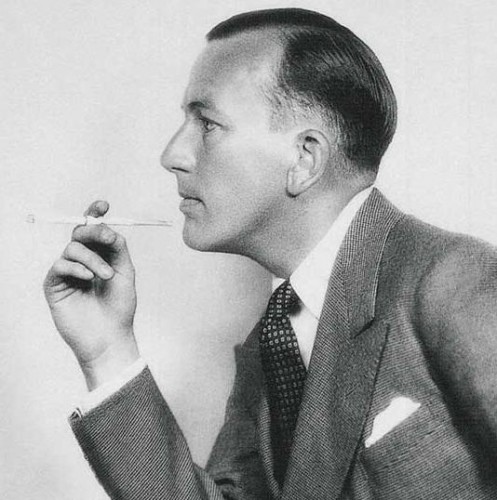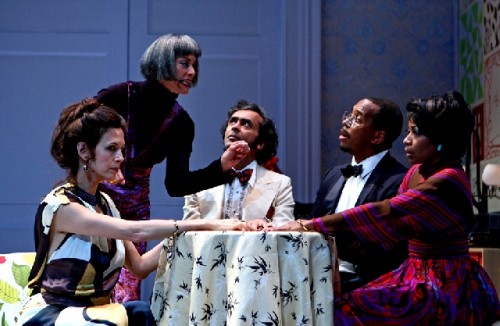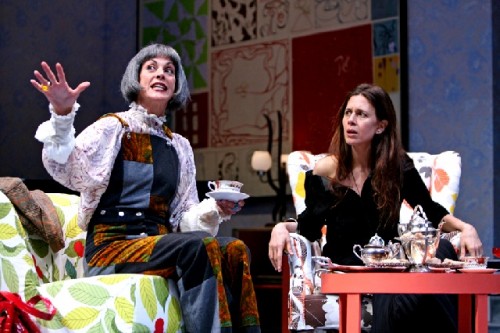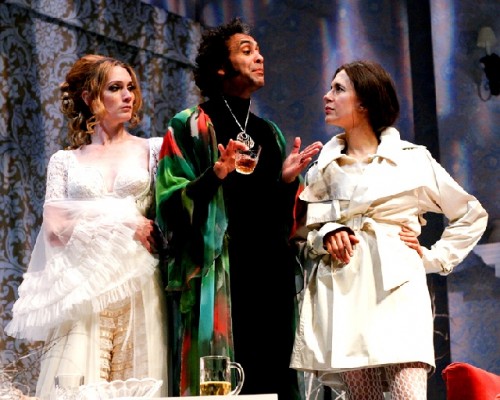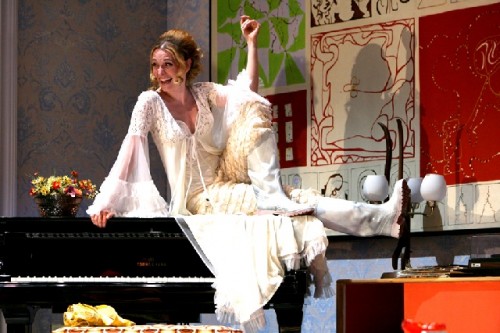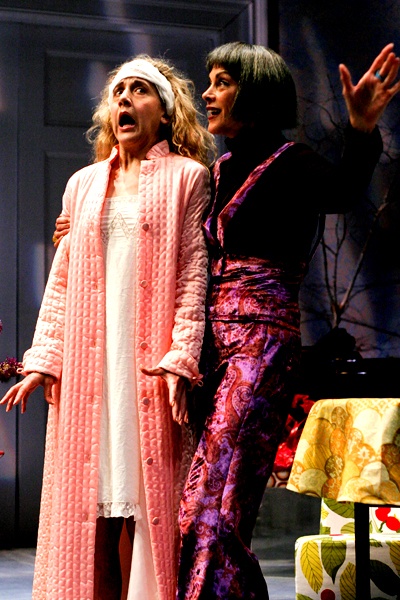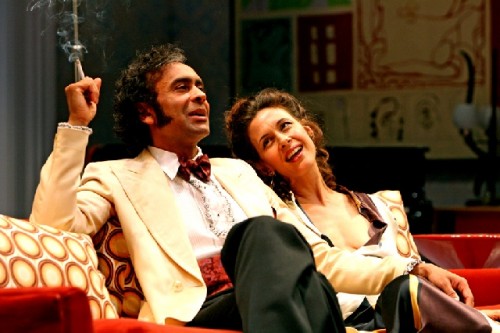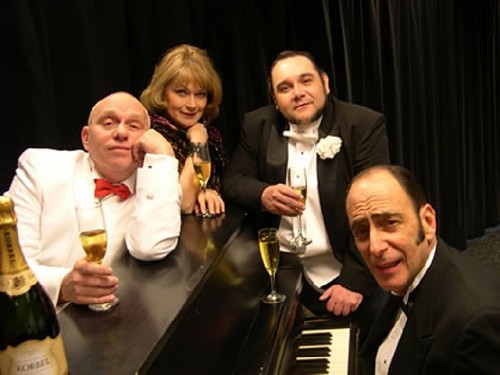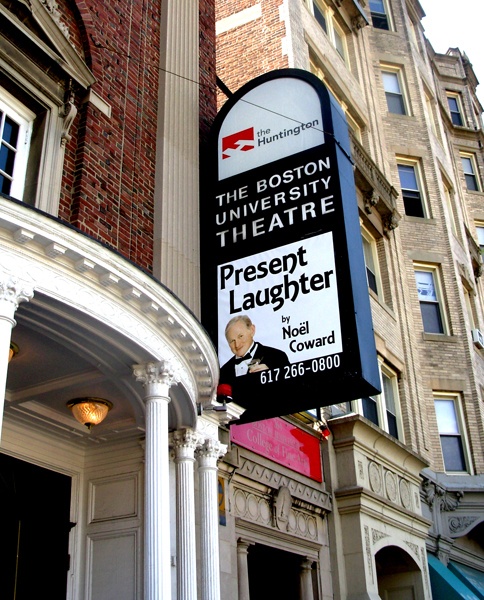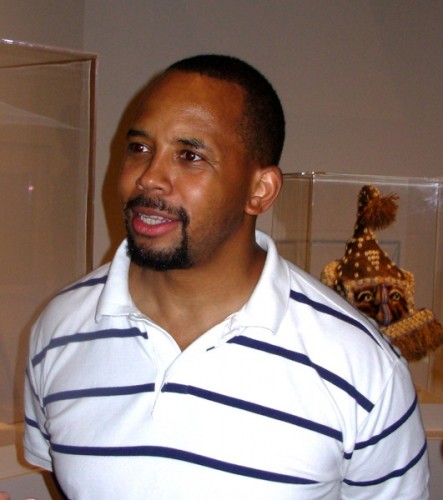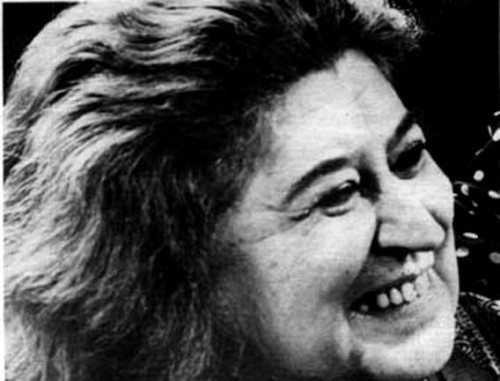Blithe Spirit at Williamstown Theatre Festival
Yet Another Noel Coward Hit
By: Charles Giuliano - Jul 21, 2007
Blithe Spirit
By Noel Coward, first produced at the Savoy Theatre in London, 1941. Director, Maria Mileaf. Sets, Neil Patel. Costumes, Katherine Roth. Lights, Nicole Pearce. Sound, Fritz Patton. Production Stage Manager, David H. Lurie. Production Manager, Michael Wade. Casting, Tara Rubin Casting. Cast: Edith, Jenn Harris. Ruth, Jessica Hecht. Charles, Bernard White. Mrs. Bradman, Adriane Lenox. Dr. Bradman, Michael Boatman. Madam Arcati, Wendie Malick. Elvira, Kate Jennings Grant. The Williamstown Theater Festival, July 18-29. http://www.wtfestival.org
Once again Noel Coward is weaving magic in a wonderfully witty and lively (irony intended) production of "Blithe Spirit" which opened before an enthusiastic audience at the Williamstown Theatre Festival. It runs through July 29. The play, which Coward is said to have written in a creative burst of just five days, deals with the theme of death and the after life in an amusing manner. Created in 1941 when London was under siege by the Luftwaffe of the Third Reich it must have struck just the right note with audiences as it set a long standing record with 1,997 consecutive performances.
It has been a season of Coward productions. Boston's Huntington Theatre presented "Present Laughter" with Victor Garber starring as a middle aged actor, a surrogate for Coward, about to embark on a tour of the hinterlands. In many ways it was more true to the period and style of Coward, indeed a stylish and dapper production, than the WTF rendering of "Blithe Spirit" which for no apparent good reason updates the play from the mood of Merry Olde England enduring the Blitz to the swinging Mod London during the time of the Beatles and "Sergeant Pepper's Lonely Hearts Club Band." Concurrent with the run of "Blithe Spirit" in Williamstown the American Repertory Theatre, in Cambridge, is running a cabaret version of Coward's musical comedy "A Marvelous Party: The Noel Coward Celebration" a boffo hit which Mark Favermann reviewed for BFA. The audience can't seem to get enough of Coward and theatre companies appear only too eager to oblige.
There are challenges, however, in presenting Coward's work with its urbane manners and sophisticated, witty patter in a far less literate era when there is less respect and fluency in the King's English. Language overall has devolved into street talk, rap, slang and doggerel. In a time when kids don't read and get their information through Wikipedia the love of text is disappearing from our culture. Or, one might ask, what culture? Faggeddahbouit. So then how to present the fast and fabulous patter of Coward its clever ars gratia artis to a contemporary audience which may just lack the ear for such intricacy and artifice? This is an issue I addressed to the Huntington performers in an article "Victor Garber, Brooks Ashmanskas, and Pamela Gray Meet the Press" for BFA on 05/ 10. There is also a review of "Present Laughter" archived in our theatre section on 05/ 24.
So then how to present Coward? Traditionally as it was staged at the Huntington, more or less straight no chaser? Or deconstructed in an over the top farce as the director Mira Mileaf has opted for WTF? Despite her at times misguided meddling the production survives and thrives, is wickedly funny and deliciously enjoyable, because, well, the play's the thing. And it is hard to mess up Coward no matter how hard one tries. Indeed Mileaf tries and tries. Curiously her Mod London is as much a period piece as would have been to the mood of the 1940s. So she has merely exchanged one time frame for another.
Some of the difficulty of "Blithe Spirit" is the suspended reality that the leisure class of that time took Spiritualism and table tapping far more seriously than today. The Ouija Board and séances were popular forms of parlor entertainment. Conjuring up ghosts from the past was both a hobby as well as a serious activity. On the corner of Newbury and Exeter Streets in Boston, for example, one finds the brownstone, former home of the Spritualist Temple. During the 60s I hung out with the white witch Sybil Leek and attended some of her séances.
Watching the characters in "Blithe Spirit" forming a circle round a table and evoked an odd nostalgia for me. Been there done that. But compared to my dowdy old witch this conjurer, Madame Arcati, was just outrageous. She devoured scenes with her ridiculous costume of bellbottom overalls and sharp, angular movements. Her rail thin body was twisted into all kinds of ersatz spiritualist calisthenics. Indeed, a witch may smite the air and divide the ethers but not with absurd movements that combine Yoga and Karate chops. But Wendie Malick pulled this off with a wonderful flair.
With the exception of the fabulous Jenn Harris who milked ever moment of the small part of the maid Edith, she was absolutely hilarious as she mugged and camped her way through a minor role, the other actors struggled to find the right mood and chemistry in a light hearted but challenging play. Here the whole proved to be greater than the sum of parts as the play worked just fine overall but had its individual glitches and non sequiturs.
Part of the difficulty, both strength and weakness, came from the eccentric sets and costumes of Neil Patel and Katherine Roth. In her opening scene Ruth, Jessica Hecht, looked quite fabulous in s print, silk unitard which underscored her lithe figure. One may never be too rich or too thin it. But then Ruth is plopped down akimbo onto a bean bag. Remember those? They may have been of the period but it was a terrible prop to force onto an actress who is intended to appear chic and elegant. Some of the other props and a terrible painting over the mantle seem to have been acquired at some post modern yard sale. At least Patel had the good judgment to leave out the Lava Lamp. When the Blithe Spirit, Elvira ( Kate Jennings Grant), the deceased first wife of Charles (Bernard White) steps out of the mirror to cause utter mayhem in a most playful manner, her costume is a disaster. Roth has clothed her like members of ABBA in the encore of "Mama Mia." She is all white ruffles and lace with a long sleeved peignoir over a bustier. When she removed the dressing gown to seduce her former husband we see the unattached garter snaps of her off the rack lingerie. It is a mood stopper and Roth might have had the good sense to snip off this prêt de porter accessories. There are a number of set and costuming pratfalls where the actors are made to look either fabulous or ridiculous.
Never mind, we were kept laughing through a thoroughly enjoyable evening of theatre. But I felt badly for Michael Boatman ("Spin City," "ARLI$$," "China Beach") who played the part of Dr. Bradman and Adriana Lenox who played Mrs. Bradman. It was interesting casting to have the African American actors playing the parts of upper middle class Brits. They were quite fine in commanding the manners and accents. But the roles didn't given them much more to work with other than filling out a table for the séance. It was also an interesting decision to cast Charles as a naturalized British citizen. Compare this to Coward himself playing the original role or the ever dashing and dapper Rex Harrison who portrayed him in the film. Again, however, White dispatched himself quite well although he clearly struggled to catch the glib, light, confectionary touch that the role demands. He is rather absurdly caught between the rock and hard place of his increasingly vexed and unhinged first wife facing off against the invisible ghost (who appears only to Charles) of the capricious and scheming Elvira who would like him to cross over to the other side and join him as a shade. Both wives were well played from the rather flouncy and floozie Elivra, the now demised sex kitten, to the elegant, classy, aristocratic Ruth.
It all spins merrily along with perfectly absurd twists and turns. Elivra's plot to kill Charles and have him join her in the after life backfires and dispatches Ruth. This devolves into a cat fight and hair pull between the ghostly rivals with the increasingly tormented and deranged Charles caught in the middle. Until he wants no more of this ghostly madness. He pleads with Madame Arcati to send his deceased wives back to the other side which hilariously involves Edith. The play more or less ends with his attempt to pack up and leave the haunted house that mod built. It seems Coward could not work his way out of the corner of his plot so he simply burned down the house. It was a less than elegant conclusion to a slightly botched plot of a play which he wrote, with minor revisions, in five days. This play however wonderful feels unfinished. But, really, who cares. Enjoy.

